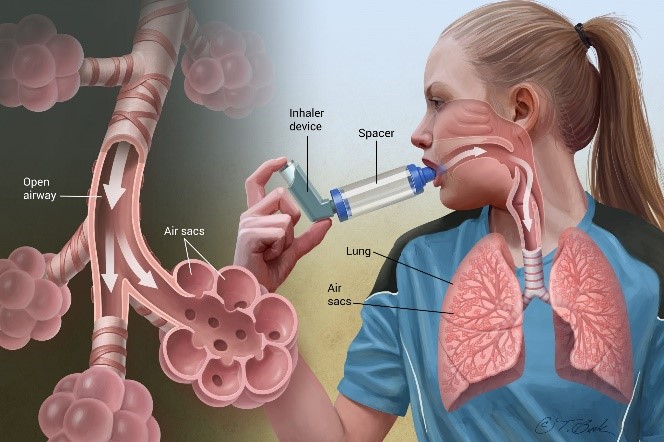
Asthma affects the way in which people breathe. Our airways are like “hollow tree branches” and air sacs are the gas exchanging “leaves” of our lung tree. Our airways are surrounded by muscle like bark covering a tree trunk and its branches. People with asthma have very “twitchy” airways that tend to become irritated and inflamed easily. These airways tend to overreact when they come in contact with certain triggers.

Common Triggers:
Weather Change or Cold Air
Colds, Upper Respiratory Infections, Ear or Sinus Infections
Anaphylaxis
Exercise
Allergens such as Pet Dander, Dust Mite, Mold, Pollen and Cockroaches
Irritants such as Perfumes, Cigarette Smoke, and Strong Odors
Signs and Symptoms of an Asthma Attack:
Frequent Cough Worse at Night and with Exercise
High Pitched Sounds (Wheezing) Made by the Lungs while Breathing Out
Chest Pain or Tightness
Sucking in of the Skin between the Ribs (Retractions)
Fast Breathing at Rest and Shortness of Breath
Difficulty with Speaking or Eating because of Fast Breathing
What to do in the event of this emergency?
Athletes need to have their “rescue inhalers” (short-acting b-agonists) during any physical activity.
Calm athlete down to try and control their breathing.
Call 911, if needed.
